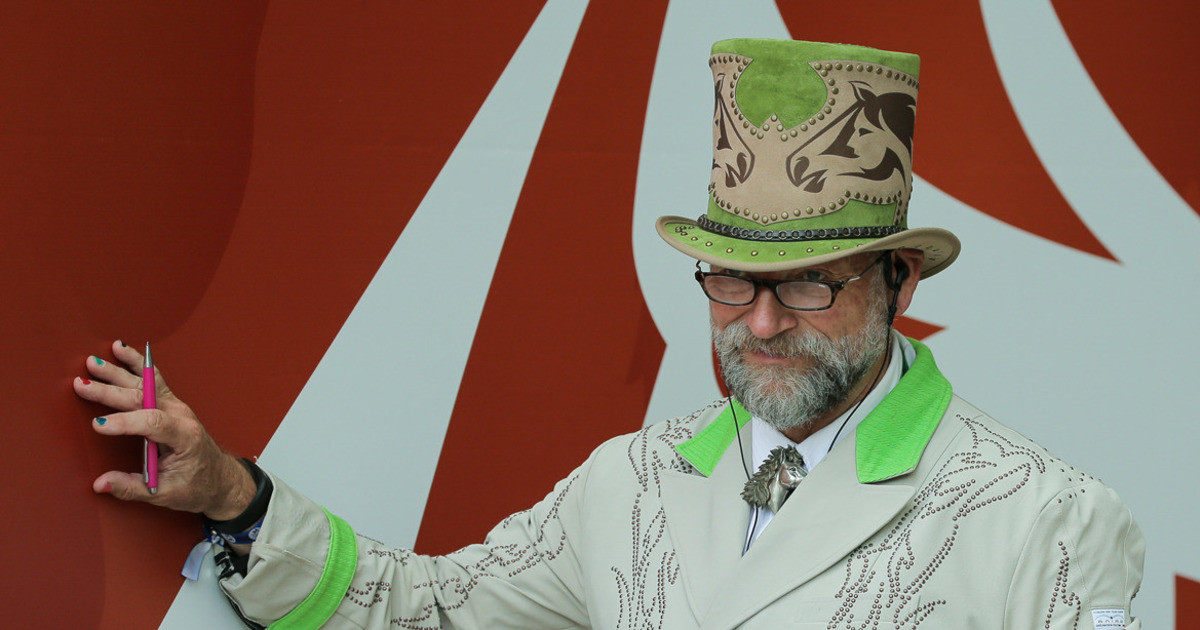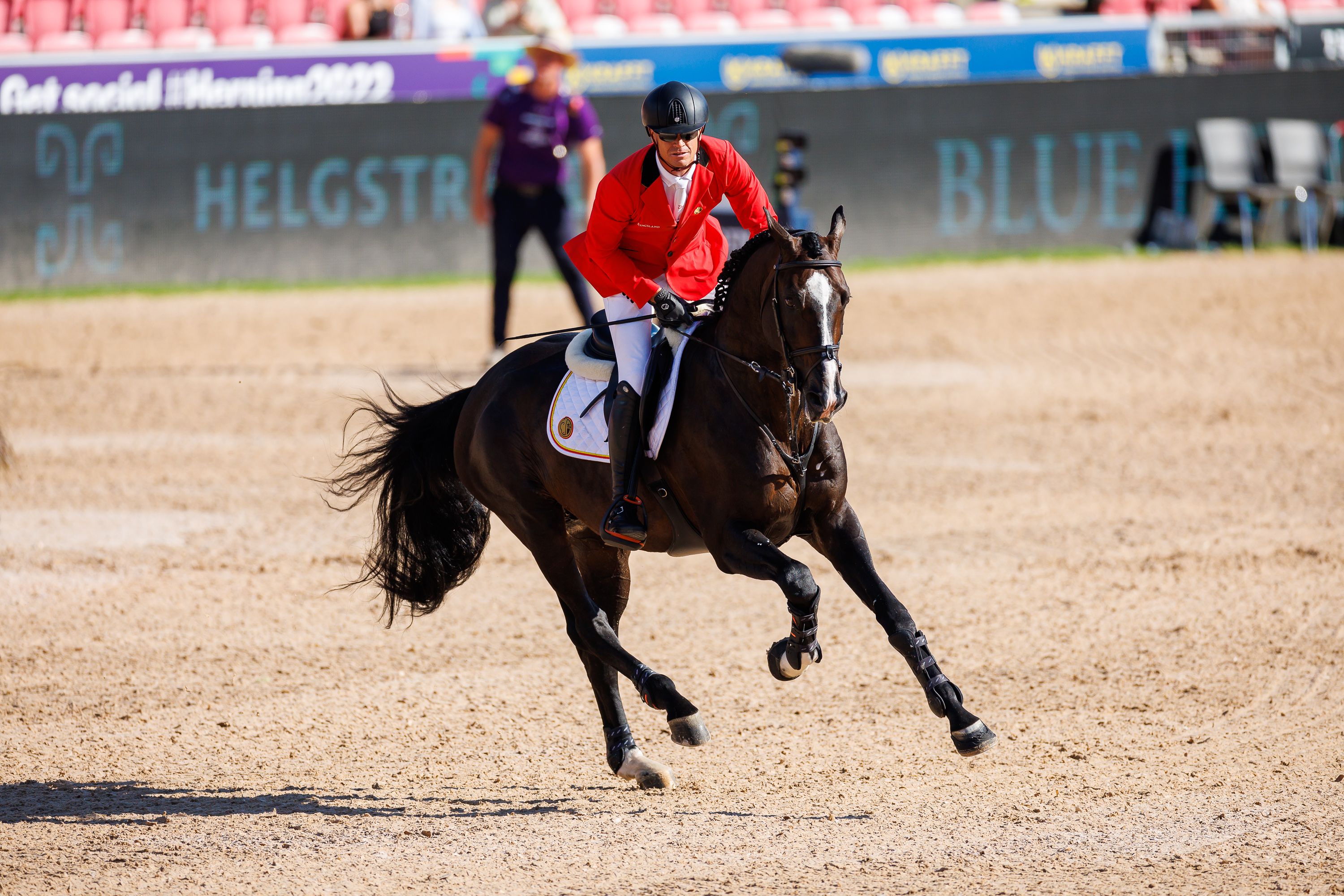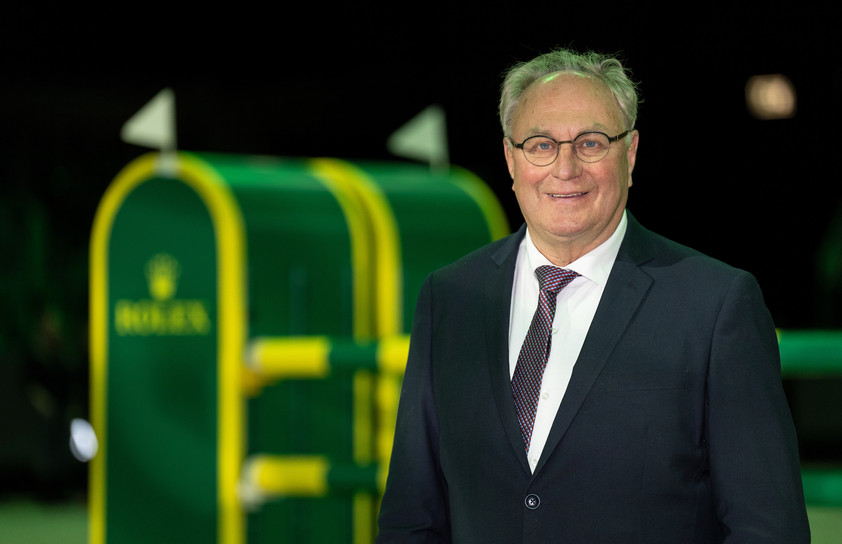It sounded like he was being dive-bombed by sea-planes when I spoke with Pedro Cebulka last week. “That’s another one coming over now”, he’d say with a laugh as our conversation about his life and times had to be put on hold again and again.
Press Release by Louise Parks
He and his wife, Janet, were staying at a cabin belonging to some friends on a camper-van trip around Vancouver Island in British Columbia just a few days before heading back to their Canadian home on the lake at Invermere. The man known in the equestrian world as “Pedro the Ringmaster” has an insatiable lust for travel, and simply loves being on the road.
To those who watch him turning chaos into order at so many of the major events on the international equestrian circuit it seems near-impossible that he has time to do anything else. But this multi-faceted character has significant business interests, a second home in Mexico where he and Janet live a different lifestyle, a great passion for music and for animal welfare, and a powerful sense of social responsibility. It’s quite difficult to keep up with him to be honest, but I give it my best shot….
“I have a Spanish first name, Polish last name, German and Canadian passports, a Dutch wife who is now also Canadian and two Canadian kids who also have German passports, so I’m really mixed up!”, he begins. However Pedro isn’t his birth name. He was born Peter Cebulka but changed it to the Spanish version after falling in love with the Latin outlook on life on his first visit to Brazil in 1976 at the age of 24.
Banking
By then he had already been very successful in the world of banking, and was on course for a university degree in Economics. But as he said when we spoke, “it wasn’t what I was meant for…..”.
He was only 15 years old when he took up a three-year apprenticeship at Deutsche Bank before moving to Hamburg where his career really took off over the next five years, “I was good at stocks and bonds and I worked my way up to the Stock Exchange”, he says. But, in his own inimitable way, Pedro also had a side-line.
“A friend of mine had a lovely pub in Lueneburg, so I worked in the bank five days a week and on Saturday morning I was a bar-tender in the pub and on Sunday morning I was a waiter. I had Sunday afternoon off and then on Sunday evening I was a bar-tender again and I learned a lot from those days. How to communicate with all kinds of people from all walks of life, how to make them happy and comfortable and how to deal with them if there was a problem”, he explains.
A trip to Brazil dramatically changed the course of his career in 1976. “After three weeks there I decided to hell with Economics, the world is too beautiful, so I stayed in South America for five months and I never looked back!” he says. “I saw Brazil, Bolivia, Peru, Ecuador, the Galapagos Islands, Machu Picchu, I learned Spanish and I met many wonderful people”.
Chance meeting
With his new-found taste for freedom he set off the following year on a world tour with a group of friends, and on his way through Banff in Canada a chance meeting would turn his life in another new direction. “It was August 1977, and I met a Swiss guy who said he was working at a new equestrian centre called Spruce Meadows and that if I wanted a job I could work there as a carpenter/helper for a few days so I did that. And when we were laid off, the riding master Albert Kley who came from the same area as me in Germany, said I could help out at the show coming up in September so I stayed and worked on maintenance and other things around the showgrounds”, Pedro explains.
By then Ron Southern, founder of Spruce Meadows and Chairman of the Calgary-based ATCO Group, had encountered the enthusiastic young German and they formed a strong bond. “He treated me like a stepson”, Pedro says.
It was only the second year of the now world-renowned Masters Tournament, and Pedro’s multiple skills were called into play as an interpreter for visiting teams and their crews, as an announcer in German and Spanish and as a course-builder. Over the next five years he would divide his time between helping out at Spruce Meadows and working as a Tour Guide.
“I was a Guide for several years in South America, Central America, South East Asia and in many exotic countries where I could help German tourists feel at home. It was a wonderful time”, he recalls.
Course-buildingDuring this period he also expanded his course-building expertise under the guiding hand of the legendary British course-designer Pam Carruthers who was responsible for the development of Spruce Meadows in the early years. Both Pam and Ron Southern encouraged Pedro to go to Europe for experience, and in 1979 he assisted at the FEI European Championships in Rotterdam (NED) before being invited to help at Hickstead (GBR). He remembers one particularly frenetic afternoon at the big British event.
“The course crew always took a break around 2.30pm, and one afternoon myself and a lady called Penny who was about 85 years old were the only ones in the arena when a rider came in. He had a refusal and destroyed an early fence so I had to run over and put it together again, and then he had another refusal on the other side of the arena and I was running around like crazy to find poles and trying to keep things going. And then he came down to the last fence and ploughed through that and it was a huge job to get it back in place before the next horse came in – all while the rest of the crew were having their afternoon tea!”, he says with a laugh.
Pam told him there was no point in going on to Dublin Horse Show looking for work. “But after three days of pestering, Steve Hickey (Irish course designer) took me under his wing and I had the best of times working with him!”, Pedro says. It was all part of Ron Southern’s advice to stay open to new ideas. “At many of the old shows they would say ‘it’s tradition, we do it this way and we can’t change”, but in Spruce Meadows we borrowed the good ideas and always kept an open mind.”
I finally ask him about his thoughts on coping with the current situation created by the pandemic that continues to restrict, and affect, life and sport. He says he’s inspired by para-athletes because they have so much to put up with, but never complain.
“I can’t speak for people who have lost their jobs and everything, it’s too hard. But there are also people who could do better but let themselves get dragged down – you have to try to be positive and make the best out of it.
“We send money down to friends in Mexico on the beach to help because it’s really tough for them. JustWorld (Pedro is an Ambassador) is an official FEI partner and works with thousands of kids who need food, so if you can help with this or any other charities then do. The world needs everyone to do their best right now”.
Ph. Animo Italy



